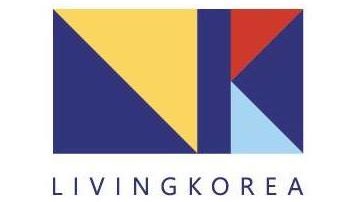Taking a Strategic Leap into Japan’s Future Healthcare Market: E-ncell's Big Move
Introduction: The Rise of Cell and Gene Therapies
In the dynamic world of modern medicine, cell and gene therapy (CGT) symbolizes a new frontier in treating chronic and genetic disorders. But how is a South Korean company like E-ncell leveraging these innovations to tap into the lucrative Japanese market? Let’s dive into this intriguing intersection of science and business.
Collaboration with Japan's Pharmaceutical Giant
E-ncell recently inked a strategic partnership with Cell Resources (CRC), a subsidiary of Japan’s leading pharmaceutical distributor, Alfresa Group. This collaboration aims to introduce advanced cell and gene therapies to the Japanese market. The inspiration behind this partnership originates from Japan’s growing focus on regenerative medicine—an initiative that seeks to boost the national healthcare sector. But why Japan, and why now?
Japan is positioning itself as a hub for advanced medical technologies, anticipating a regenerative medicine market worth 15 trillion won by 2030. Such staggering projections make the Japanese landscape ripe for E-ncell’s expertise in CGT. By joining hands with CRC, E-ncell is setting the precept for international growth and innovation in the CDMO (Contract Development and Manufacturing Organization) sector.
Understanding the CGT CDMO Business
What exactly does the CGT CDMO business entail? Simply put, CGT CDMOs help pharmaceutical companies develop and manufacture cell-based products on a global scale. These organizations provide comprehensive services, including research, development, and production. E-ncell’s capabilities in running globally certified production facilities (GMP) align seamlessly with this model, making it a key player.
Being the current leader in Korea’s CGT CDMO market, E-ncell’s venture into Japan allows for the cross-pollination of technology and expertise. This symbiotic relationship is expected to enhance both parties’ ability to deliver innovative health solutions faster and more efficiently.
Technological Transfer and Its Implications
As part of the deal, E-ncell and CRC are exploring avenues for technological exchange. This means E-ncell will likely pass on its cutting-edge processes and production techniques to CRC, underscoring the significance of intellectual capital in international partnerships.
Technological transfers can be equated to a recipe book exchange among world-renowned chefs. It’s not just about sharing ingredients but rather intricate techniques and trade secrets that elevate culinary art to new heights. Similarly, in the pharmaceutical arena, shared knowledge can lead to groundbreaking advancements, paving the way for enhanced treatment options and improved patient outcomes.
E-ncell's Homegrown Strength: GMP Facilities and Innovative Therapies
Back in Korea, E-ncell is celebrated for its sophisticated GMP facilities. These are akin to tech laboratories, meticulously designed to meet the strict standards set by regulatory bodies such as the U.S. FDA. By mastering this complexity, E-ncell has built a robust platform for both cell and viral vector manufacturing, setting the stage for new drug innovations.
Consider E-ncell’s development efforts in creating EN001, a promising candidate for rare disease management. Recently recognized by the U.S. FDA as an orphan drug for treating Charcot-Marie-Tooth disease—a testimony to the company’s diligent research and commitment to addressing unmet medical needs.
E-ncell’s Vision: Achieving Global Dominance
E-ncell's CEO, Jang Jong-wook, articulated grand ambitions for the company's activities in Japan. Expressing optimism, he believes that forging close ties with strong, local enterprises will significantly enhance E-ncell’s chances of successful drug pipeline launches and outward technology transfers.
The strategy mirrors business expansions in other technology sectors where building a strong local network is crucial for success. Such practices allow quicker adaptation to new markets and better understanding of consumer needs—factors fundamentally aligned with E-ncell's mission to deliver quality medical innovations globally.
The Japanese Government's Role: A Catalyst for Growth
Japan’s endorsement of CGT and regenerative medicine as pillars of future growth demonstrates a clear interest in reshaping its healthcare system. The Japanese Ministry of Economy, Trade, and Industry is steering this initiative, aiming to create an environment ripe for innovation and collaboration. Such governmental incentives accelerate the introduction of foreign expertise and stimulate domestic markets, fostering an ecosystem poised for rapid advancement.
Just as city greenspaces rejuvenate urban life by improving air quality and offering recreational opportunities, government backing nurtures the healthcare sector by encouraging investment and minimizing entry barriers for global players like E-ncell.
Conclusion: Bridging Borders for a Healthier Tomorrow
In summary, E-ncell’s recent endeavors to enter the Japanese CGT market through strategic partnerships and knowledge sharing promise exciting prospects for both nations. By leveraging advanced technologies and fostering international cooperation, E-ncell is poised to play a significant role in transforming regenerative medicine.
As readers, what do you think about the role of international collaborations in the pharma sector? Could this be a blueprint for future healthcare innovation? Share your thoughts!

